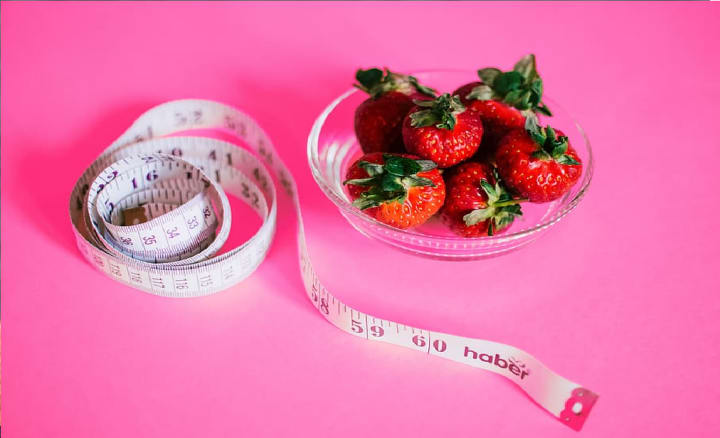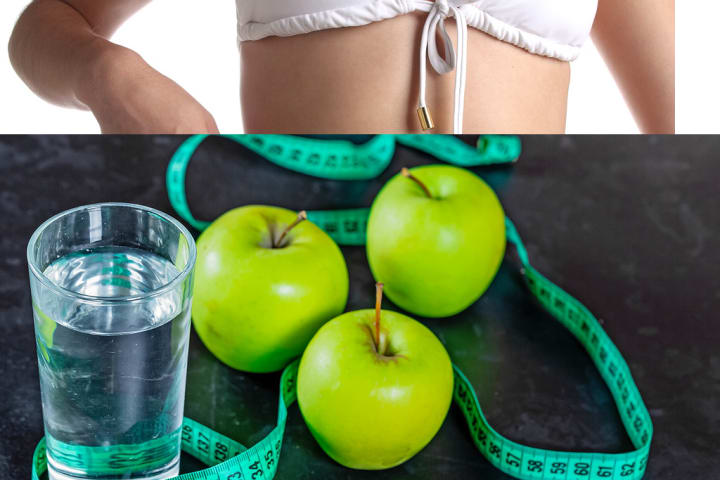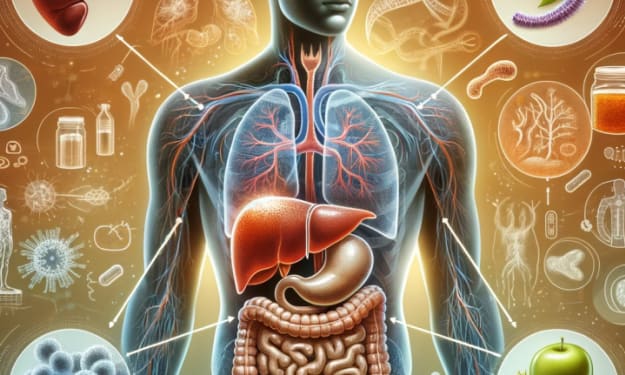
The fitness industry, particularly the fat loss sector, is a quagmire of disinformation and pseudoscience.
While the only method to lose weight is to create a calorie deficit, we are bombarded with useless and harmful fat reduction drugs, gimmicky training routines, and fad diets.
Even when it comes to calorie deficits, factors like hours of exercise and tight diets are recommended. These are certainly beneficial, but there is one incredibly successful strategy that is rarely discussed.
I discovered this strategy after noticing that whenever I went home for vacations, I'd gain weight and then lose it all within a few weeks of returning to college.
It turns out that I had been unwittingly taking use of this unusual fat-loss technique in the past.
This can account for up to half of your daily energy expenditure.
The number of calories you burn in a day is known as your Total Daily Energy Expenditure (TDEE). You will lose weight if your calorie intake is less than this. It's that simple.
So, if you want to lose weight, you must either improve your TDEE or reduce your calorie consumption. Exercise, particularly cardio, accomplishes the former, while dieting accomplishes the latter.
However, research reveals that exercise accounts for only 2 to 10% of total daily energy expenditure. The remainder is made up of:
Your Basal Metabolic Rate (BMR) (About 50% of your TDEE) — this is the energy required for bodily functions such as respiration, cell repair, brain functions, and blood pumping.
The Thermic Effect of Food (BMR) (About 8–15% of your TDEE) — this is the energy required to digest and assimilate the consumed nutrients.
Your Non-Exercise Activity Thermogenesis (NEAT) (From 15 to 50% of your TDEEs) — a fancy term for your daily physical activity apart from exercise.
We're most interested in the last one — NEAT. According to studies, it contributes a stunning 50% to the TDEE of highly active people.
Yes, 50%, which is more than 5 times that of exercise. Remember how, in college, I would miraculously lose weight?
It was due to increased NEAT – my college campus has over 300 acres, and by walking to class, the gym, canteens, or the grocery store, I'd get in roughly 5 to 6 kilometers of walking per day!

Discover the ''Simple Morning Ritual'' that sheds excess weight!
Losing weight – my story
Change your diet rather than going on a diet.
I read Peter Fitzsimons' book "The Great Aussie Bloke Slim-Down" over the holidays.
It's the story of a former rugby champion in his 50s who had gained weight (152 kg) before discovering the key to lasting weight loss. He dropped 45 pounds and kept it off. How?
There are three essential stages to follow.
Remove sugar from your diet (and salt)
No alcohol
Exercise
The book is packed with wisdom, but these are the key takeaways for me.
This blog concludes with my personal tale.
Why sugar is harmful to your health.
Sugar never fills your stomach or quenches your thirst, leaving you wanting more. It is swiftly metabolized, and any excess is stored as fat.
You are no longer affected by sugar.
Because sugar alters our body's appetite, it makes us hungry. To put it another way, the more sugar we consume, the more sugar we require.
Stop eating sugar, and you'll stop eating.
Stop eating and you'll lose weight.
Carbohydrates are broken down or metabolized by our bodies into sugars like glucose and fructose.
Insulin is produced by the pancreas, and it communicates which muscles and organs want glucose, removing it from the bloodstream.
Insulin inhibits our hunger in a normally functioning organism.
The more sugar we consume, however, the more insulin we make and the more resistant our brain becomes to the insulin signal. This means we consume more, gain weight, have higher blood pressure, and are more likely to develop diabetes.

Insulin is not released when fructose is consumed.
Furthermore, fructose raises the net level of ghrelin, a hormone that signals us when we're hungry.
Have you heard enough? No, not yet. Let's talk about leptin for a moment. Leptin is a hormone that is produced when our fat cells detect an increase in glucose levels. "We have too much fat, stop eating so much," the body is saying.
However, just like insulin, the more fat we gain, the more leptin we create. Our brain becomes more resistant to leptin as we create more of it.to the leptin signal As a result, we eat more and gain weight.
Sugar reduces the action of insulin and leptin on our self-correcting appetite.
Some meals digest (metabolize) fast, while others take longer. A can of Coke provides a burst of energy. However, you rapidly become thirsty again. It's like trying to keep a fire going with only paper, according to dietitians. Yes, the paper will ignite and then flare up, generating heat, but it will rapidly die out, forcing you to rekindle the fire with additional paper.
Place anything slow-burning on the fire, such as boiled eggs or avocado, as a preferable alternative.
to the leptin signal As a result, we eat more and gain weight.
Sugar reduces the action of insulin and leptin on our self-correcting appetite.
Some meals digest (metabolize) fast, while others take longer. A can of Coke provides a burst of energy. However, you rapidly become thirsty again. It's like trying to keep a fire going with only paper, according to dietitians. Yes, the paper will ignite and then flare up, generating heat, but it will rapidly die out, forcing you to rekindle the fire with additional paper.
Place anything slow-burning on the fire, such as boiled eggs or avocado, as a preferable alternative.
So the biggest issue with sugar and junk food is that they don't fulfill you at all.
Complete the "QUIZ" below, to see how much weight you can lose...
What causes you to gain weight when you consume sugar?
Excess glucose is converted to glycogen, which is stored in the liver for up to 150 grams, giving 24 hours of carbohydrate energy. The remainder is converted to fat.
When our fuel tank is full, excess fat is transferred to our reserve tank, which is normally found around the belly button for men and the thighs and hips for women.
The main fuel tank is filled with glucose. The liver breaks down fructose, which circulates in the circulation as bad cholesterol before settling in our reserve tank as fat.
A can of Coke has 160 calories in it. For a year, a can of Coke contains 58,400 calories (365 x 150 calories). They believe you gain a kg of fat for every 7,700 calories you don't burn.
If this person does not burn the calories in the Coke they consume in a year, they will gain 7.5 kg of fat.
You'll only add fat to your reserve tank if you keep drinking Coke and eating chocolate.
While there are many severely overweight men in their 40s, 50s, and 60s, there aren't nearly as many in their late 70s and 80s, since the harsh reality is that if they don't lose weight by then, they usually die.
Everything works as it should without sugar, and we cease overindulging.
This product is 100% all natural...Vegetarian...Non-GMO...Gluten free..proven to be 100% completely safe...and has zero side effects.
We have no idea how much sugar we eat.
The difference between how much sugar our bodies are equipped to handle and how much sugar we actually consume is startling.
Sugar consumption is limited to 9 tablespoons per day. In truth, our bodies can function without sugar.
According to studies, the average Australian and American consumes at least 36 teaspoons of sugar each day, which equates to a kilo of sugar per week and more than 50 kilos per year at 4 grams per teaspoon!
A can of Coke includes somewhat more sugar than our daily limit. This means that with each new can of soda and all other sugar intake, we are increasing our sugar intake.
Only 20% of the shop shelves would remain if all sugar-containing foods were removed.
Fresh meat, fresh milk, fresh veggies, and fresh fruit can all be found along the perimeter of your supermarket. Every item in the aisles has been prepared and packed. Anything in a package should be avoided.
Read the nutrition information on the package, especially the 100 grams column, to see how much sugar is in what you're eating. Tomato sauce, for example, contains 32% sugar, Kellogg's Honey Smacks contains 56% sugar, Masterfoods BBQ sauce contains 54% sugar, and Tim Tams include 44% sugar.
Sugar is added to our diet in substantial amounts by the processed food industry.
Half of the sugar is glucose, and the other half is fructose, which is twice as sweet as glucose.
The industry has a term for how much sugar, fat, and salt should be added to products in order to increase customer cravings (read addiction) and thus industry profits. It's known as "the bliss point."
Isn't this similar to the tobacco industry?
For decades, the processed food business has effectively played us for mugs.

What should I do?
According to the New York Times, 231 million Europeans attempted a diet in 2002. Only 1% of these people were able to maintain their weight decrease.
Diets are ineffective. Rather, alter your eating habits. Remove sugar from your diet.
When the body needs food, it burns carbs first, then fat, and last protein. You will lose weight if you eat less than your body requires to function. Simple.
Fibre is essential for a healthy diet. Fibre can be found in almost any food. Fibre is the component of the food that isn't broken down and instead passes through the digestive system, bringing waste products with it and making our bowel motions more regular. The majority of the fiber in processed foods has been removed.
Your food accounts for 80% of your weight, while your level of activity accounts for 20%. (exercise).
The kitchen, not the gym, is where abs are created.
Commitment means sticking to something even if you're in a bad mood.
It's important to remember that moderation simply does not work for a large portion of the population. If you're one of those people who can't stop at just one Tim Tam or one can of Coke, asking you to regulate your diet won't work in the long run.
"Abstinence is as easy for me as temperance is difficult," as the phrase goes.
If you fall into this category, you should consider quitting cold turkey. Yes, you should give up sugar (and salt).
When you do, you will discover
1. Your hunger level will decrease.
2. You will consume fewer calories.
3. You will shed pounds.
4. You'll be in better health, with a stronger liver and heart.
Be conscious of what you eat and how you eat it.
The first mouthful is the banquet. Enjoy the flavor.
According to Michael Pollan,
"Most of what we eat nowadays isn't technically speaking food at all, and how we consume it - in the car, in front of the TV, and increasingly alone – isn't actually eating."
Eat slowly and deliberately. Concentrate on your food rather than your phone, paper, computer, or television.
It's fine if you're hungry. We have lived in a condition of hunger for the majority of human history. The sensation of hunger is the same as the sensation of losing weight.
Breakfast as if you were a king, lunch as if you were a prince, and dinner as if you were a poor.
You're not a dog, so don't bribe yourself with food.
Gluttony is an emotional release that involves something devouring us rather than us eating stuff.
Nothing should have sugar added to it. For example, if you can't drink coffee without two or three lumps of sugar, it's sugar, not coffee, that you like.
Eat it if it's a plant. Don't eat anything made in a plant.
Eating one-legged foods (mushrooms and plant foods) is preferable to eating two-legged foods (chicken), which is preferable to eating four-legged meals (cows, pigs and other mammals)
Last words of advice
Consider getting some exercise. A half-hour workout takes up only 4% of your day.
Put an end to the sugar.
Put an end to the takeout.
Getting enough sleep is essential.
Keep yourself hydrated.
Fitzsimons' suggestion that we abstain from drinking is ridiculous, and I would not contemplate it.
Complete the "QUIZ" below, to see how much weight you can lose...
My own experience
I used to be a fit and athletic young man. I had a healthy weight and a flat stomach. I had no issue finding clothes that were appropriate for me.
In my late 30s, though, I developed a paunch. It was irritating at first, but as I grew older, it became more obnoxious, as did my disappointment.
The scales then tipped to the wrong side of 100 kilograms.
Since Christmas 2016, I've made a conscious effort to cut down on my sugar consumption.
Coffee, booze, and water are the only beverages I consume. Soft drinks, juices, energy drinks, and flavored milk are not permitted.
Chocolate, candies, cakes, ice cream, chips, and other similar items are prohibited.
I start my day with a sugar-free or low-sugar breakfast. Lunch contains nil or few carbohydrates. Dinner is whatever the family decides to eat.
I'm not as hungry as I used to be now that I'm eating less sugar. I don't eat in between meals and have no desire for snacks.
I am not a zealot. It's possible that I'm consuming too much sugar. My coffee still has honey in it (but not always). Desserts are something I occasionally indulge in. I continue to get takeout.
I haven't started a workout routine.
The end result
I've lost roughly 7 kilos since Christmas, and my weight has dropped below 100 kilos for the first time in 15 years.
I still have a stomach (which may never go away), but I'm pleased with what I'm seeing on the scale.
You are You today.
That is absolutely correct.
No one is still alive.
Who is more knowledgeable than you?
10 Shocking Ingredients In Your Food: What You NEED To Know Before Your Next Trip To The Grocery Store

About the Creator
YANS
The Health Benefits of a Bio Natural Diet: Everything You Need to Know.
I'm a certified health coach and nutrition expert.
My goal is to take the confusion out of healthy living and make it simple for everyone.






Comments
There are no comments for this story
Be the first to respond and start the conversation.